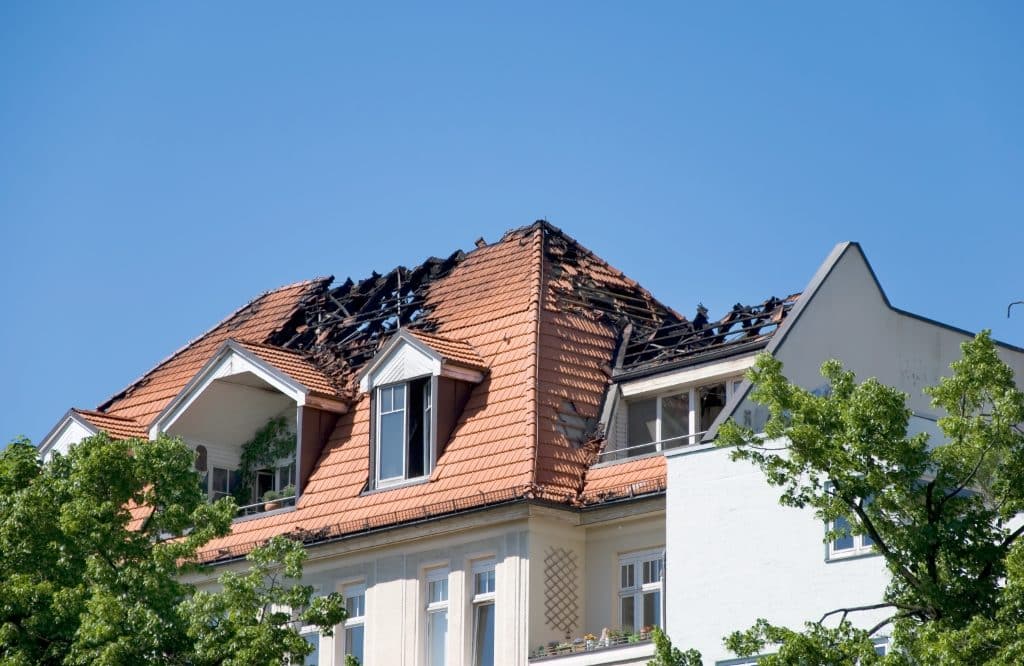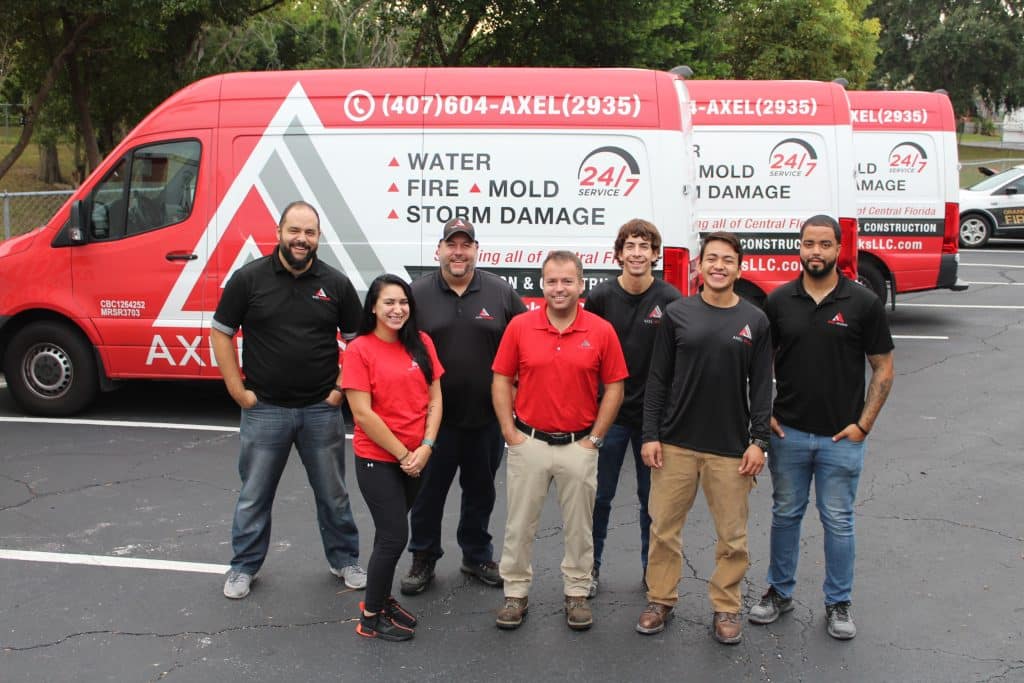
Here are the necessary steps for contacting your insurance company after a disaster.
Very few people ever expect that a storm, fire, flood, or other disaster is going to ravage their home. Which is why—when these accidents do happen—they are often left unprepared and overwhelmed.
Yet knowing how to contact your insurance company (and clean up the mess) is a crucial part in putting your life and your home back together following a disaster.
In this article, we’ll talk about the steps you need to take after a home-related emergency.
Disasters like fires and floods can quickly turn into tragedies if you’re not careful. Before you do anything else, take the necessary steps to make sure your family is safe.
During an emergency, it is easy to become frazzled and confused. Yet keeping your family and/or roommates safe is your top priority during this time! Make sure your family has a plan and practice it regularly.

Once the emergencies have been taken care of, it’s time to look at what needs to be done to fix the damage.
Home disasters tend to fall under four main categories:
Sometimes, you may be dealing with more than one type of damage.
While assessing the damage, take lots of photos. The more pictures you take immediately following the incident, the better. Your insurance company will rely heavily on these photos to determine the extent of the damage and the amount of your compensation.
You should also resist any urge to begin throwing away damaged furniture or repainting the walls. Again, the insurance company will need to see the state of your home immediately following the incident in order to work on your claim.
However, Florida law requires you to make any repairs necessary to prevent further damage (such as boarding up windows and tarping your roof). Keep all receipts, as you will submit these to the insurance company later.
Contact your insurance agent ASAP to file a claim and to make sure you’re receiving the full benefits of your policy.
For instance, many homeowners are unaware that their home insurance policy will cover living expenses (such as lodging and food) in the event that their home becomes unlivable after a disaster.
You should also get detailed information about which policy to use, how much you can expect to be reimbursed, and what your deductible is.
Another reason not to hesitate? If the disaster affected multiple homes (as is common with hurricanes), your insurance company will likely be inundated with calls. They will probably prioritize these claims according to severity, so you’ll want to get in line as soon as possible.

Resist any temptation to do cleanup yourself!
DIY restoration is never as easy as it seems (no matter how many YouTube tutorials you watch). Without the proper qualifications, you could end up causing more damage to your home, leaving it vulnerable to the next disaster.
A professional restoration company, however, has the education and experience to bring your home back to pristine condition whether you’re in need of water damage, emergency tree removal, or something else.
One thing to keep in mind, however: never sign an Assignment of Benefits Agreement (also known as an AOB form)! This essentially waives your rights to talk to your insurance company and hands that authority over to your contractor.
A good disaster relief company will never make you sign an AOB form before they begin work. Look for an insurance-vetted company with a good reputation.
Take pictures throughout the cleanup process and hold on to all receipts.
If your home is unlivable, keep track of all living expenses so your insurance company can reimburse you later.
Keep in mind that you are only entitled to additional living expenses. If you normally spend $200 a week on food costs and are now spending $500 because you cannot use your kitchen, you will only be reimbursed the difference ($300).
Lodging costs are usually reimbursed at 100%, as you will still have to pay your mortgage and property taxes while you are living outside the home.
Dealing with a disaster can be overwhelming, but at Axel Works, we consider our duty to make it as stress-free as possible.
Not only are we extremely knowledgeable and experienced as a disaster remediation company, we are also an approved vendor for leading insurance companies. And in addition to disaster cleanup, we can also assist you in upgrading your home.
Call us anytime for 24/7/365 emergency response.
Leave a Reply